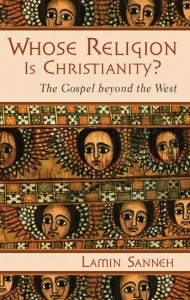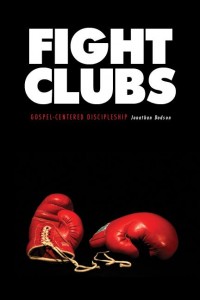Whose Religion is Christianity?: The Gospel Beyond the West
A Book Review
Summary

Professor of Missions and World History at Yale University, Lamin Sanneh, is one of the leading missiologists today.Among other works like Translating the Message and Disciples of All Nations, Sanneh’s book Whose  Religion is Christianity: The Gospel Beyond the West has won several awards. In addition to Sanneh’s fine academic analysis of contemporary issues in missions, his Gambian perspective offers the reader a unique perspective on Christianity. Using his experience as both a professor of Western students and a student of African culture, Sanneh uses this book to raise a range of questions that explore the impact of the global shift of Christianity from the Post-Christian West to a Post-Western Christianity. The present growth of Christianity in the 2/3rds world alone (24,000 converts a day in Africa) should be enough to pique our interest.
Contributions
Sanneh’s contributions come both in form and content. Using a dialogical form of presentation, Sanneh softens the impact of his exploration of volatile theological and missiological issues. However, the reader is left to question whether or not the questions, purportedly originating with Sanneh’s students, have been printed verbatim? Nevertheless, his content is bold and at times brow-raising, forcing the reader to deal with missiological, theological, and hermeneutical issues that otherwise would be easily passed over. The convergence of Sanneh’s hermeneutical, theological, and missiological statements not only serve to address relevant topics, but also to model an integrated way of thinking about missiology and the world in general.
Learning Theology from the Non-Western World
In question #8 Sanneh asks: “What is the significance of the growth of World Christianity for the West?” To which he replies:
The West can encounter in World Christianity the gospel as it is being embraced by societies that had not been shaped by the Enlightenment, and so gain an insight into the origins that shaped the NT church.
Such statements argue for a more reciprocal approach to mission: teaching and being taught. This is an excellent rebuttal to parochial mission and theology. We have much to learn from the Majority World, not only because of the fresh gospel encounters with culture that mimic the New Testament, but also because of the fine, prophetic theology and powerful mission done in a pre-Enlightenment part of the world. However, at times, Sanneh appears to blockade the blessings the Western church seeks to bring:
The tradition of exegesis that has been practiced in the West seems to have run its course.
Should we, as Sanneh suggests, discard the hermeneutical contributions of the “post-Christian West� Should we not open our ears to exegesis from across the nations, to discern an orthodox center of gravity that includes centuries of theological wisdom from the West?
Learning Mission from the Non-Western World
Sanneh points out four key reasons for the explosive growth of the church in Africa:
- The end of colonialism
- Bible translation
- Use of vernacular names of God
- Local cultural renewal
What would it look like for the Western Church to focus on parallel issues to advance the mission of the gospel? What if…
- We took a prophetic stance against Consumerism, calling for more sacrifice and less comfort for the sake of the gospel?
- Looked for fresh ways to communicate the Scriptures in our ever-changing technological landscape?
- Creatively used 21st vernacular to contextualize the gospel in the wide-array of cultures and sub-cultures in the U.S.?
- Sought local urban, suburban, rural renewal instead of trying to conform to globalized pop culture?
We have much to learn from Sanneh and the Majority World. Let’s learn from the gospel’s explosive and powerful work beyond the West so that we can release its power once again in our very own states and country.



